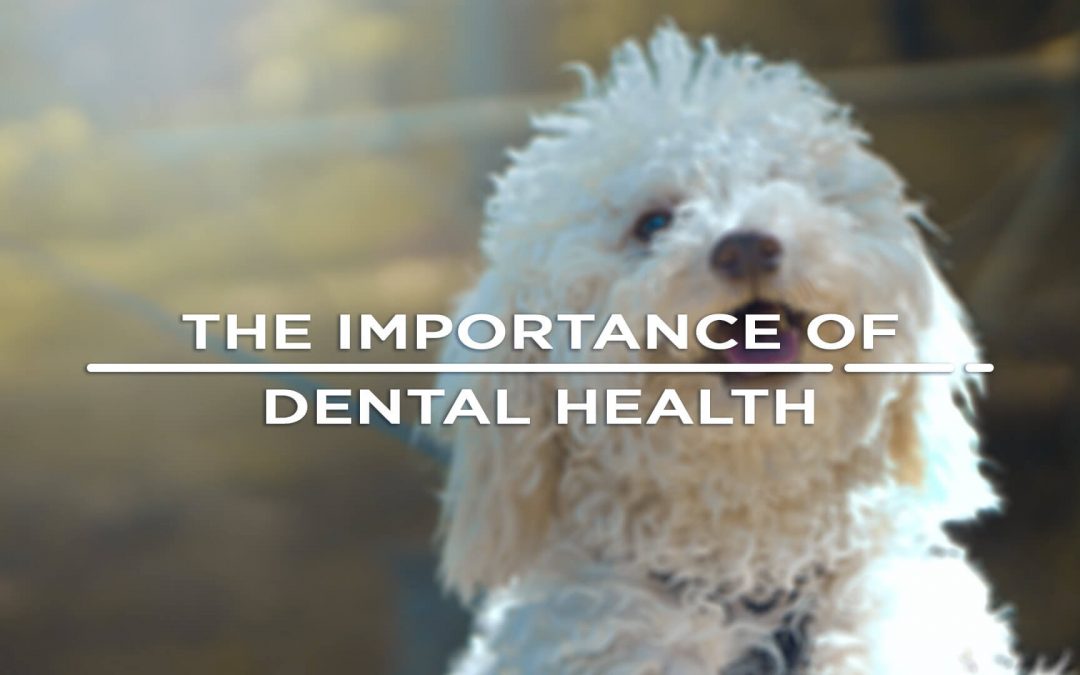Your Pet’s Dental Health Explained.

May and June are dental health months for pets at Hilton Vet Hospital in Fremantle. This means it’s the perfect opportunity to give your pet’s teeth the attention they deserve. From taking a look at their teeth and gums to booking them in with a friendly Fremantle vet for a proper check-up, here’s everything you need to know about your pet’s dental health.
The Risk to Your Pet
Whenever your pet eats food, the bacteria from the food mixes with their saliva and forms a sticky substance called plaque. Plaque sticks to the surface of their teeth, and if it isn’t removed, it will mineralise, harden and become tartar.
Tartar is the enemy we want to get rid of. This hard brown stuff on your pet’s teeth harbours bacteria that cause painful gum disease and can lead to tooth decay. The bacteria can even enter the bloodstream and attack the heart, liver and kidneys.
Symptoms of Dental Disease
Bad breath is a clear sign of dental disease. Your pet might eat less food or lose weight, or you might notice that they chew on one side of their mouth, or prefer soft food to biscuits. Other signs of dental disease include dribbling, pawing at their mouth or face, wobbly or broken teeth, and red, inflamed gums.
Remember that pets can’t tell us they have a toothache and they don’t complain. They tolerate the pain as it slowly gets worse — and many of us know how debilitating toothache can be.
The Four Stages of Dental Disease
Most pets over three years of age will have some form of plaque and tartar build-up. It’s important that you have regular dental check-ups with a Fremantle vet. If your vet identifies a problem, your pet will fall under one of the following four categories.
Grade 1
During the early stages of dental disease, a thin layer of plaque covers the enamel of the teeth.
Grade II
The plaque starts to mineralise due to minerals in the saliva and causes tartar to form. Up to Grade II, there is no permanent damage to the gums or teeth.
Grade III
Permanent damage to the gums causes receding gums and deep gingival pockets that leave the roots exposed. Some Grade III teeth might have to be extracted due to the damage to the surrounding bone that normally keeps the tooth in place.
Grade IV
Once bacteria gets into the gingival pockets, it can progress to Grade IV dental disease. This is where tooth root abscesses, serious gum disease and wobbly teeth develop. At this stage, the teeth will have to be extracted.
Preventing Tooth Decay
There are things you can do to prevent your pet from developing dental problems. Feed them a good quality diet, brush their teeth every day, and offer them dental chews and toys with small bumps to help remove the tartar. Book them in with a Fremantle vet for a dental check-up and ask about available treatments.
Hilton Vet’s dental health checks are free all year round. During May and June, we are offering a 10% discount on all dental work, including a scale and polish. Once we’ve done a scale and polish, your pet won’t stop smiling and their teeth will be pearly white and shining. If you’re looking for a local community vet in Fremantle who cares about your pet’s teeth as much as you do, get in touch with Hilton Vet



